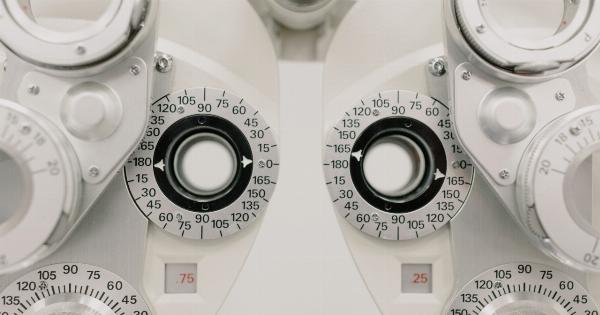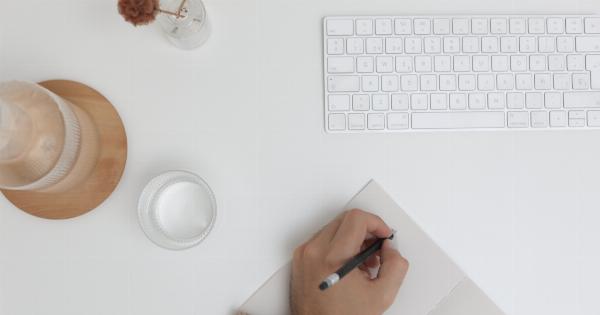Our eyes are one of the most important and delicate organs in our body. They allow us to see the world around us and experience its beauty. However, our eyes are also constantly exposed to various factors that can cause harm and damage.
This is why it is crucial to protect our eyes and ensure their health and well-being.
The role of glasses in eye protection
Glasses are a popular and effective way to protect our eyes from harm. They provide a physical barrier between our eyes and the outside environment, shielding them from potential dangers.
Whether you have a prescription or not, wearing glasses can offer numerous benefits in terms of eye protection.
Shielding against harmful UV rays
One of the major benefits of wearing glasses is their ability to block harmful UV rays. Prolonged exposure to UV rays can lead to serious eye conditions such as cataracts, macular degeneration, and even cancer of the eye.
By wearing glasses with UV protection, you can significantly reduce the risk of these conditions and maintain good eye health in the long run.
Preventing eye strain and fatigue
In today’s digital age, many of us spend hours in front of screens, be it for work or leisure. This constant exposure to screens can cause eye strain and fatigue, leading to symptoms like dryness, redness, and blurred vision.
Glasses with special coatings like anti-reflective or blue-light-blocking can help alleviate these symptoms by reducing glare and filtering out harmful blue light emitted by screens.
Protecting against debris and foreign objects
Whether we are engaged in DIY projects, playing sports, or simply going about our daily activities, our eyes are susceptible to injuries caused by debris and foreign objects.
Glasses act as a shield, preventing dust, particles, and other objects from directly reaching our eyes. They offer an added layer of protection, reducing the risk of corneal abrasions, scratches, or even more severe injuries like penetrating trauma.
Enhancing safety during physical activities
Engaging in sports and physical activities can pose a risk to our eyes due to potential impacts and collisions. In these situations, wearing protective glasses specifically designed for sports or safety goggles can help prevent serious eye injuries.
These glasses are made with impact-resistant materials and often come with additional features like wraparound designs and adjustable straps to ensure a secure fit.
Improving vision and reducing eye strain with prescription glasses
For individuals with vision problems, wearing prescription glasses not only corrects their vision but also protects their eyes from additional strain. Uncorrected vision can lead to headaches, eye fatigue, and decreased productivity.
By wearing glasses with the right prescription, individuals can enjoy improved vision, reduced eye strain, and a better quality of life.
Choosing the right glasses for eye protection
When it comes to choosing the right glasses for eye protection, there are several factors to consider:.
1. UV protection:
Look for glasses that offer 100% UV protection to shield your eyes from harmful rays.
2. Fit:
Ensure the glasses fit well on your face, covering your eyes fully and comfortably.
3. Lens material:
Opt for impact-resistant lens materials like polycarbonate or Trivex for added durability and safety.
4. Lens coatings:
Consider special coatings like anti-reflective, scratch-resistant, or blue-light-blocking for enhanced eye comfort and protection.
5. Sports-specific glasses:
If you engage in sports or physical activities, invest in glasses specifically designed for athletic pursuits to ensure maximum eye safety.
6. Regular eye exams:
Visit an eye care professional regularly to have your eyes examined and prescription updated if needed, ensuring optimal eye health and vision.
Caring for your glasses
Proper care and maintenance of your glasses are essential for their longevity and effectiveness in protecting your eyes. Here are some tips:.
1. Clean your glasses regularly:
Use lens cleaner and a clean, lint-free cloth to clean your glasses. Avoid using abrasive materials or harsh chemicals that can damage the lenses.
2. Store them properly:
When not in use, store your glasses in their protective case to prevent scratches and damage.
3. Handle with care:
Avoid placing your glasses face down or bending the frames excessively, as this can lead to misalignment or breakage.
4. Avoid extreme temperatures:
Do not expose your glasses to extreme heat or cold, as it can cause the frames to warp or the lenses to crack.
Conclusion
Protecting our eyes should be a top priority, and wearing glasses is an effective way to ensure their safety and well-being.
Whether it’s shielding our eyes from harmful UV rays, preventing eye strain and fatigue, or safeguarding against debris and foreign objects, glasses play a vital role in maintaining good eye health. By choosing the right glasses, regularly visiting an eye care professional, and taking proper care of our glasses, we can protect our eyes and enjoy clear vision for years to come.





























